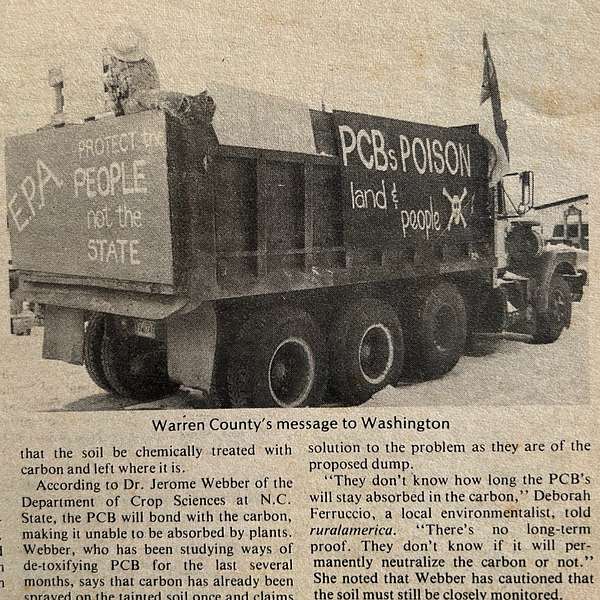
Our Road to Walk: Then and Now
Our Road to Walk: Then and Now
Our Road: Then -- E18 The Hand That Rocks a Cradle Can Also Make a Fist
In this episode we are returning to our Warren County PCB landfill narrative as the history is unfolding in January and February, 1979. Why should our listeners care about what happened forty-four years ago? Because the Warren County PCB landfill history is actually a history of the EPA’s war of toxic aggression, and to know this history is to understand (as EPA whistleblower William Sanjour put it) “how the EPA was captured by the industry it regulates.” The history is as relevant now as ever.
As the January 25, 1979 EPA ruling on the state’s Warren County PCB landfill plan is pending, the Hunt Administration asks the EPA to delay its decision. The residents in the 14 counties want the roadside PCBs picked up, but Warren County citizens are adamantly opposed to becoming a statewide PCB dump.
A letter to officials from the Sierra Club criticizes the state’s PCB landfill plan and advises Hunt Administration officials to withdraw its application until new regulations become effective.
The state considers an in-place PCB carbon treatment plan that citizens consider to be a strategic delay tactic, and Warren County Citizens’ executive committee members decide to seek advice from federal officials in Washington, DC.
John Tom and Frances Harris decide to sponsor something dramatic and decide to donate the use of one their dump trucks for a 15 mile per hour ride to Washington, DC.. The Harris Construction foreman, Wallace Neal, and Deborah join the farmers’s serpentine tractorcade to Washington DC and meet Ken, Frances, and John Tom and then meet with federal officials.
While Frances tells officials that “The hand that rocks a cradle can also make a fist,” Wallace drives the PCB truck, complete with signs, round and round the capitol. The Warren County crew returns with advice to commissioners to ask President Carter for federal disaster aid and to ask Warren County Commissioners to reach out to commissioners in the 14 counties to work together on a PCB solution.